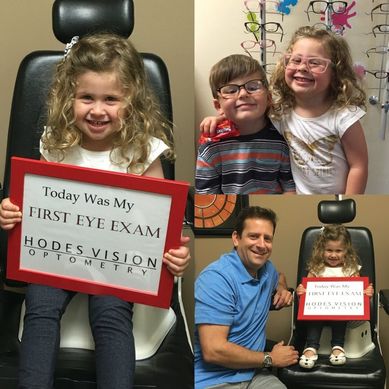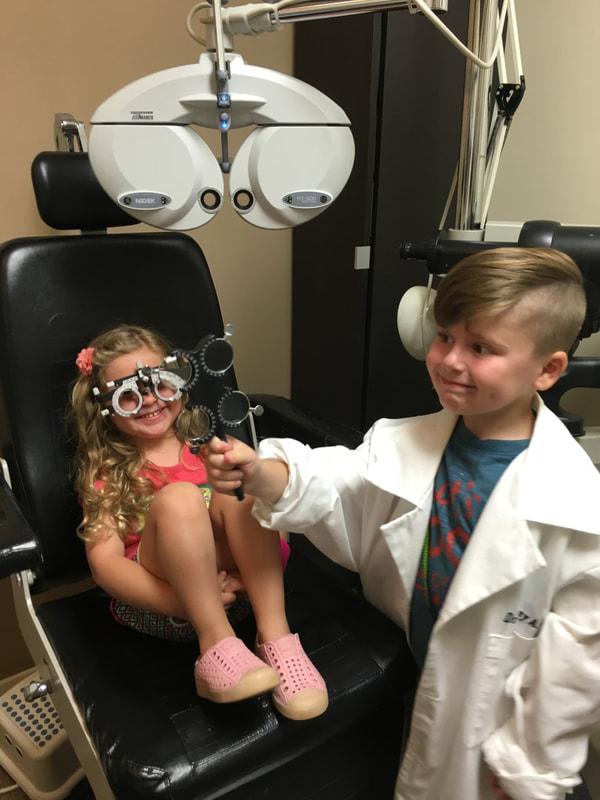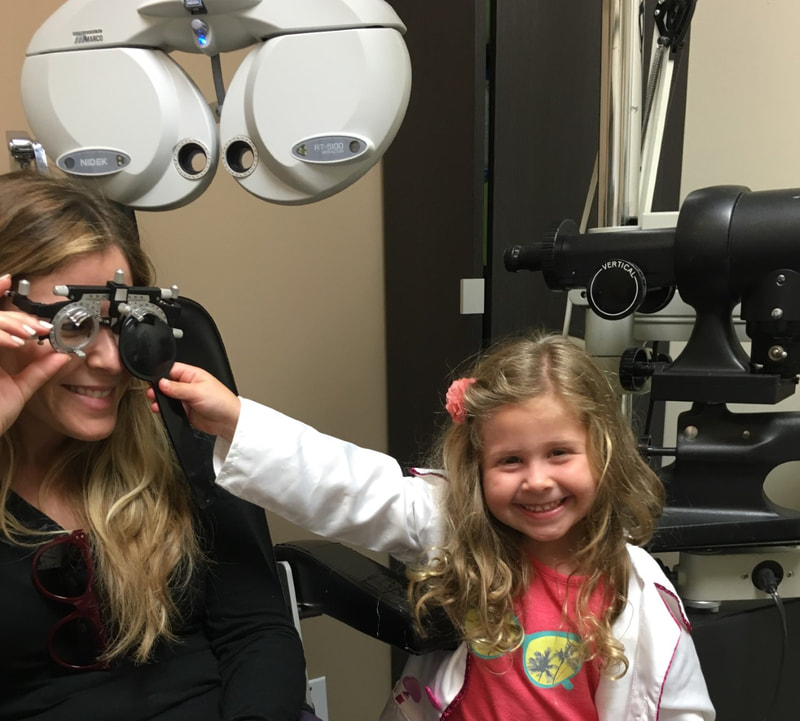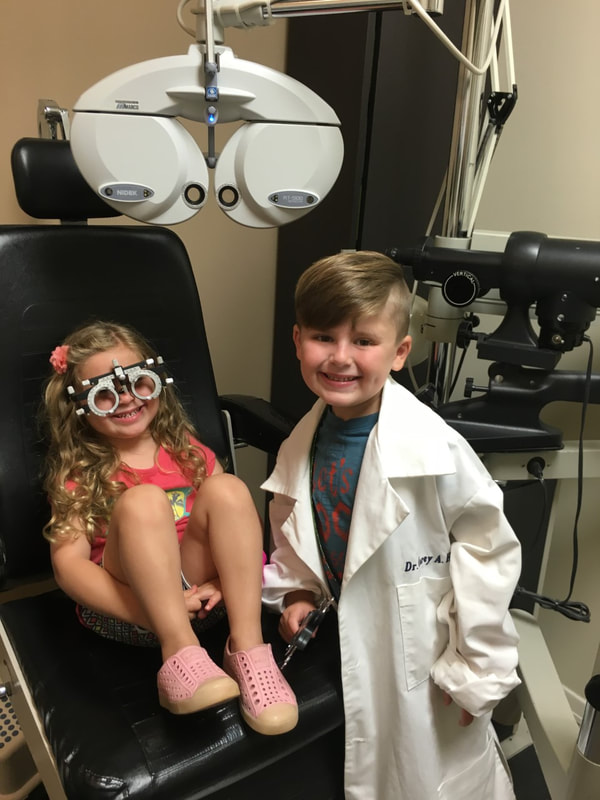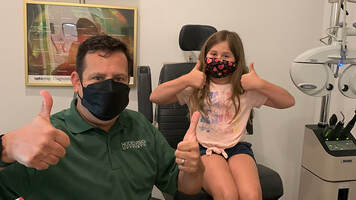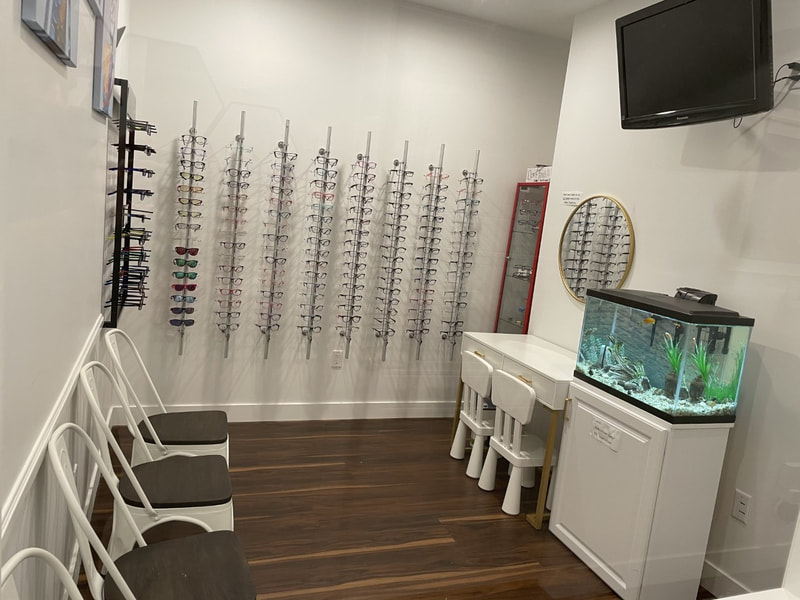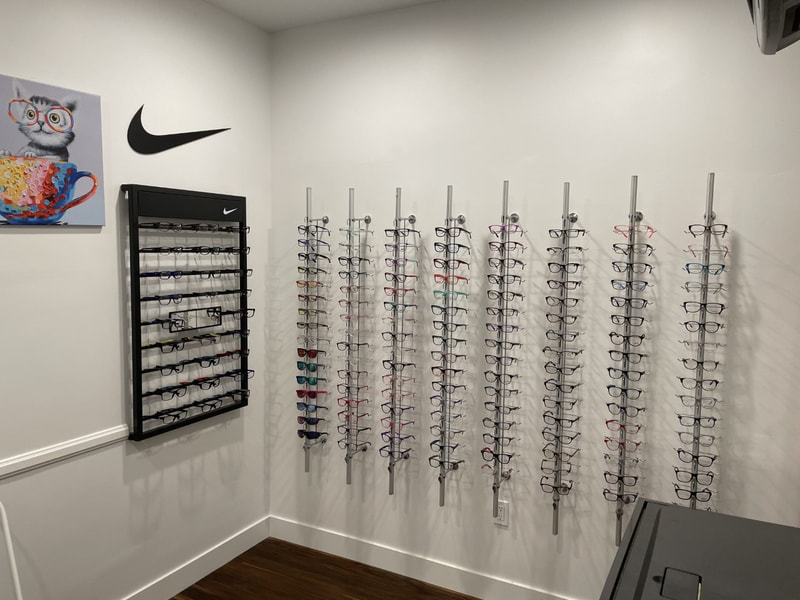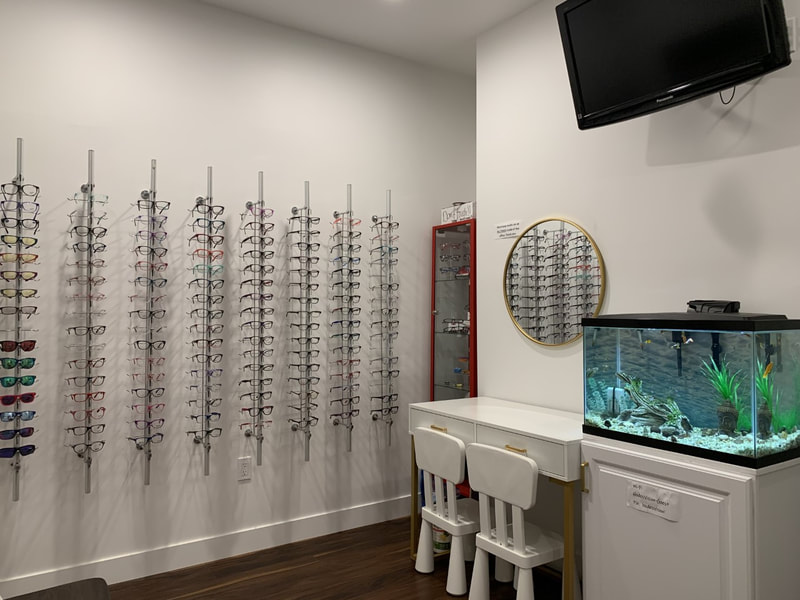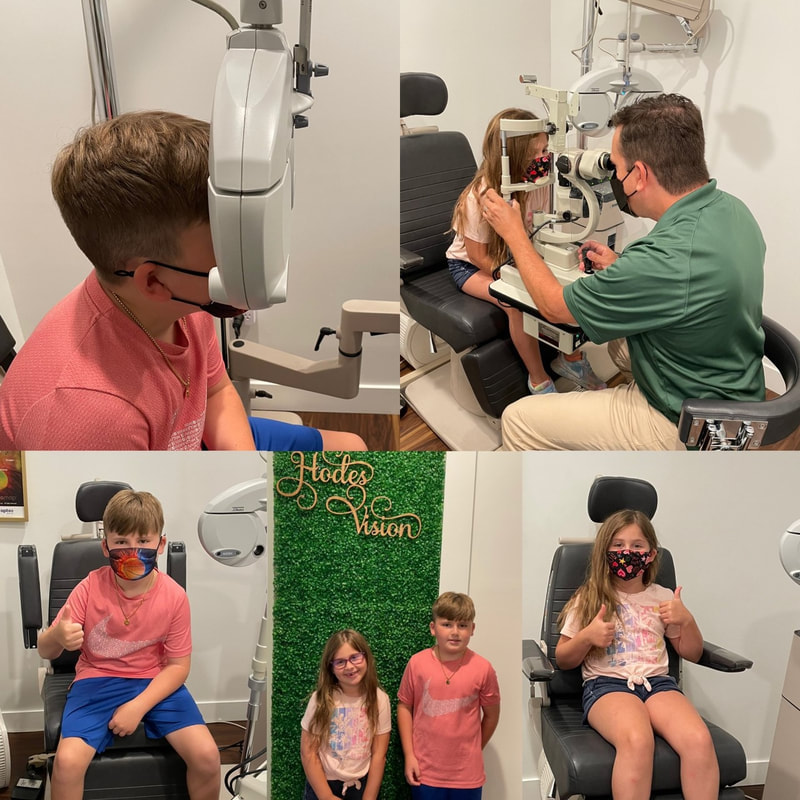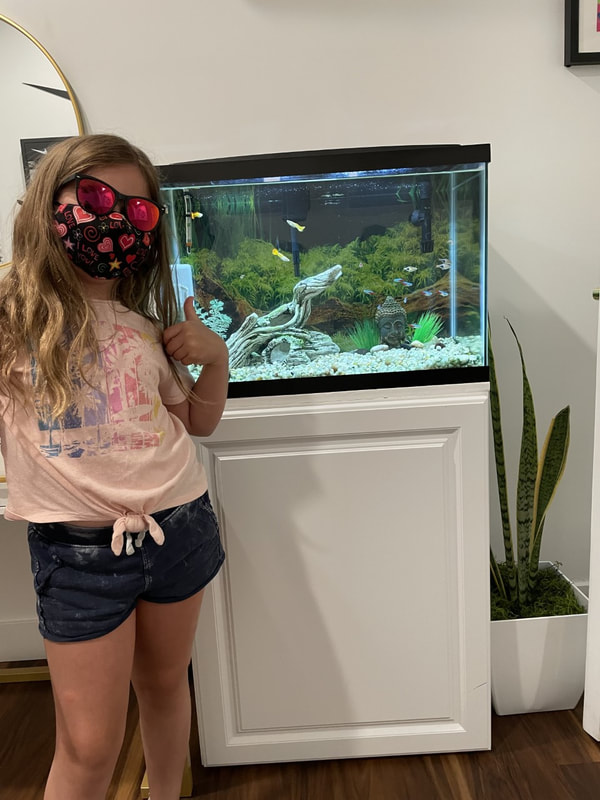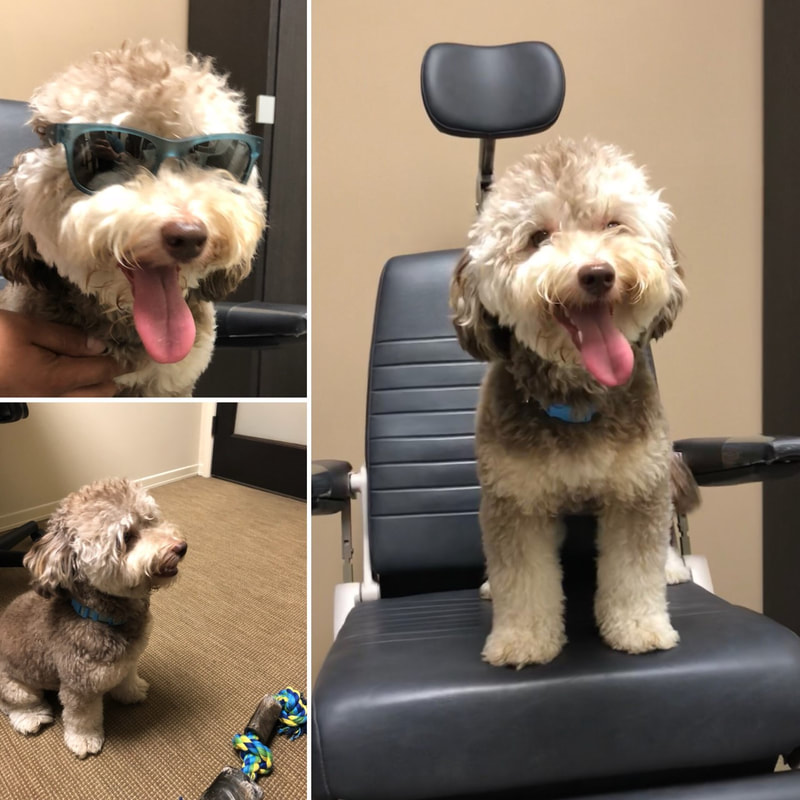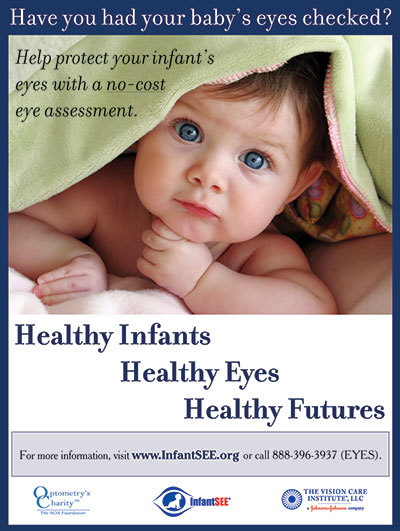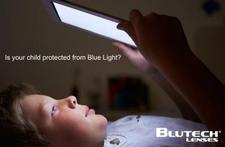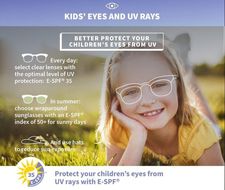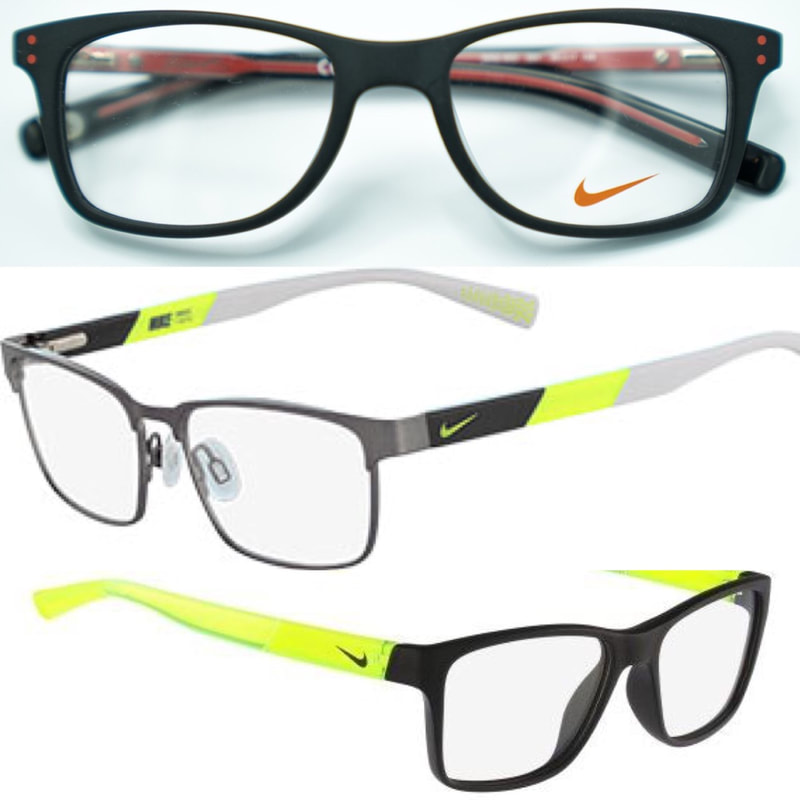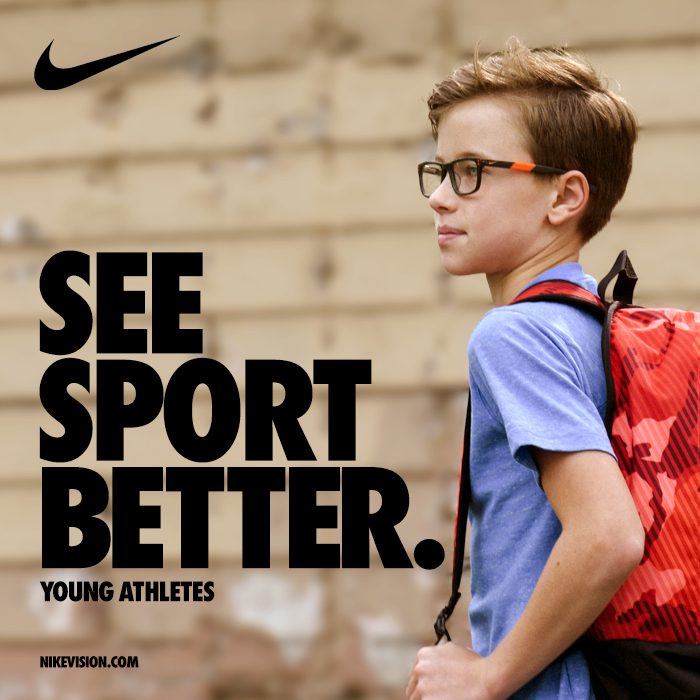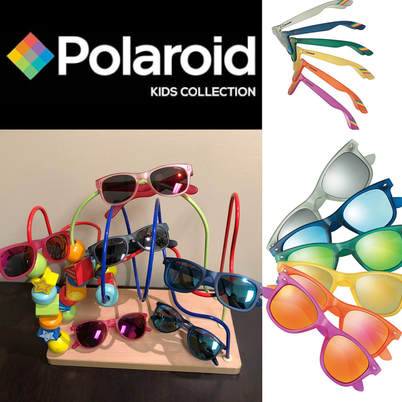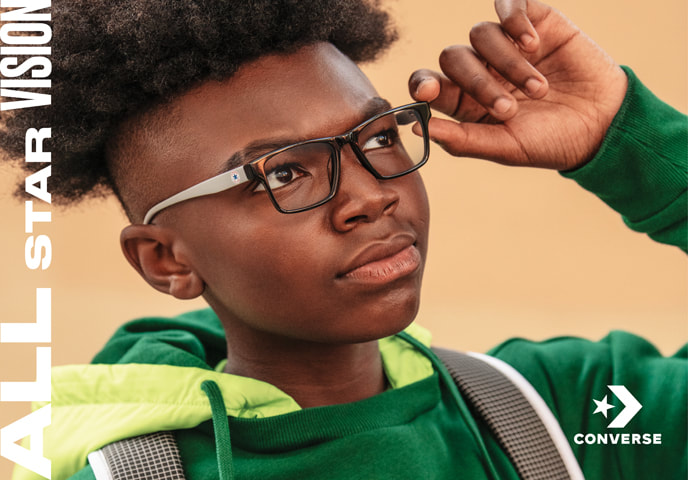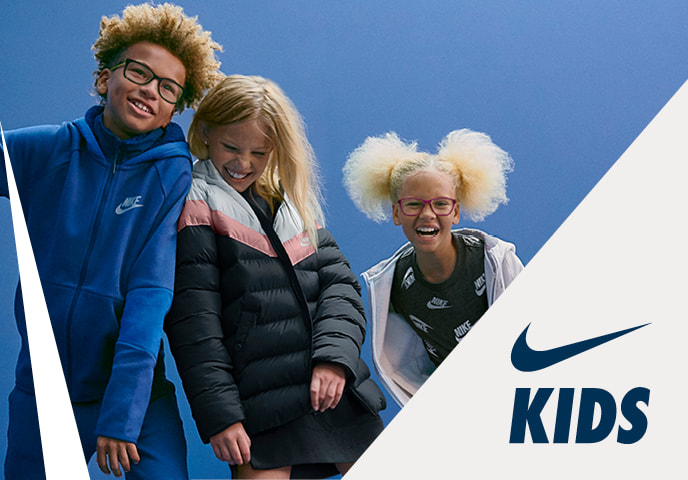Pediatric Eye Care
|
The doctors at Hodes Vision Optometry encourage parents to bring their children in for routine vision exams.
Dr. Hodes sees children as young as 6 months old. He participates in the InfantSEE Program and provides a NO-COST comprehensive eye assessment to all children between 6 and 12 months of age as a public service. Dr. Bhatt sees children age 5 and older. Our child friendly exam rooms are designed to evaluate sight in patients of all ages, even those who are too young to talk and tell the doctor what they see. We have a separate kids optical and waiting area dedicated exclusively for our pediatric patients and their families. The earlier eye problems are caught, the better: Not only do eye problems hinder learning, but some, such as lazy eye, can lead to virtual blindness if not treated in the first few years of life. |
|
Have your child watch the video below to see what its
like to have a comprehensive exam from a child's perspective.
like to have a comprehensive exam from a child's perspective.
Below are some suggested guidelines for children's vision from the Vision Council of America:
DOES YOUR CHILD NEED AN EYE EXAM?
When you're deciding whether or not you should take your child in for an eye exam, consider the following:
- An estimated 10 million children age 10 and younger have vision problems
- Home tests or vision screenings will not detect all of a child's vision problems
- 80% of what a child learns during the first 12 years is obtained through vision
- 1 in 4 children has an undiagnosed vision problem
- Visual impairment in children is associated with developmental delays and the need for special educational, vocational and social services
|
PEDIATRIC EYE EXAMS
Birth -
Your baby's eyes should be examined for general eye health and signs of congenital eye problems (even though they are rare). Six Months -
Take your baby to a doctor of optometry for a thorough eye exam. Age Three -
Schedule another eye exam for your child. School-Age -
Your child should have another eye exam prior to entering Kindergarten (Age 5-6). Continue to schedule periodic eye exams to screen for eye focusing and/or eye coordination problems that can affect school performance. School and pediatric vision screenings do not take the place of a thorough eye exam by an eye doctor. |
WARNING SIGNS & RISKS FOR VISION PROBLEMS IN CHILDREN ARE:
- Squinting, closing or covering one eye
- Constantly holding materials close to the face
- Tilting the head to one side
- Rubbing eyes repeatedly
- One or both eyes turn in or out
- Redness or tearing in eyes
- Premature birth
- Developmental delays
- Family history of "lazy eye" or "thick glasses"
HAVE YOUR CHILD WATCH THIS VIDEO TO PREPARE THEM FOR THEIR FIRST
EYE EXAM!!!
EYE EXAM!!!
CLICK BELOW TO LEARN HOW TO PROTECT YOUR CHILD'S EYES FROM HARMFUL BLUE LIGHT AND UV RADIATION!!!!!

